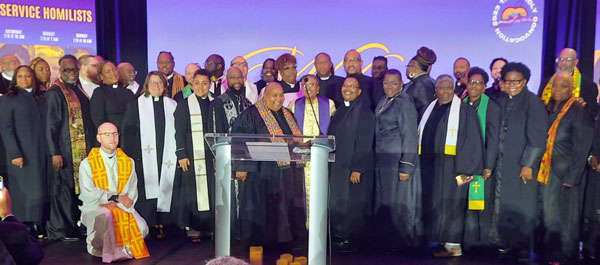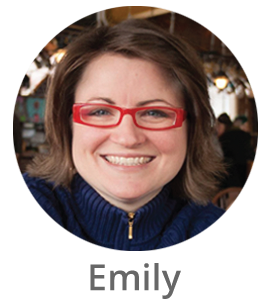A NON-DENOMINATIONAL CHURCH
Non-Denominational with a Difference
We are a non-denomination church with a difference (like LGBTQ+ inclusion). A little background might help: the earliest churches to accept LGBTQ+ people were Protestant mainline churches, so non-denominational churches like Blue Ocean Church are pretty new. Usually “non-denominational” churches are evangelical; as such, they are usually not LGBTQ+ inclusive. Often they also limit how women can serve. So we are non-denominational with some big differences: LGBTQ+ inclusion and gender equality (reflected in the makeup of pastors and board).
Non-Denominational Doesn’t Mean Disconnected: TFAM
Like other non-denominational churches, we are part of a church network—in our case, The Fellowship of Affirming Ministries (TFAM). Pastor Emily’s second ordination was conducted by Bishop Yvette Flunder of TFAM and they hold our church under their umbrella of churches. The midwest Bishop of TFAM is Bishop Tim Wolfe, who is based in Chicago; Bishop Wolfe and the other midwest pastors meet regularly online for accountability, support, prayer, and community.
The Fellowship of Affirming Ministries is a multi-denominational group of primarily African American Christian leaders and laity representing churches and faith-based organizations from the USA, Africa, and Mexico. Founded in 2000 by Rev. Dr. Yvette Flunder, pastor of City of Refuge UCC in Oakland, CA, the overriding purpose of The Fellowship is to support religious teachers and laity in moving towards a theology of radical inclusivity which, by its very nature, requires an equally radical social ministry, reaching to the furthest margins of society to serve all in need without prejudice and discrimination.
In addition, one of our six theological distinctives is about the importance of connection with other churches and faith traditions and we try to incorporate that ethos into our minstries. An example is our connections with St. Clare of Assisi Episcopal Church and Temple Beth Emeth, a Reformed Synagogue, with whom we share a building and engage in joint activities. Also, our pastors participate in local clergy groups with diverse membership. We sometimes work with Church of the Good Shepherd, one of the first congregations in town to accept LGBTQ+ people, and part of the United Church of Christ.
What We Like About the Non-Denominational Label
We believe Christianity is in a time of great change. Advances in science and the study of ancient documents (including the Bible) have challenged the way many churches think about faith. As a result, churches need to be able to adapt to a quickly-changing landscape. Sometimes the structures of denominations hinder, rather than help—even as they connect us with the treasures of the past. Denominations can absorb a lot of energy. Also, at times, the needs of the institution (for financial security, mostly) trump progress. We don’t believe our approach is better, just that it has some important advantages that we appreciate and which fit our mission.


